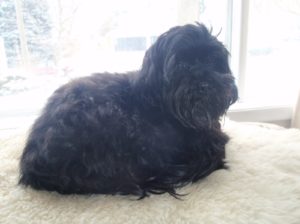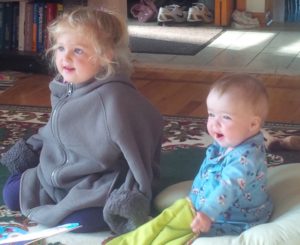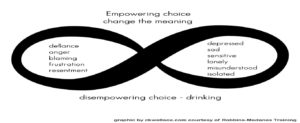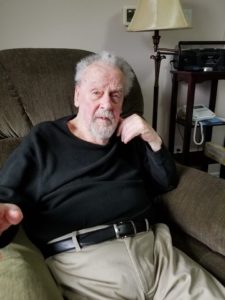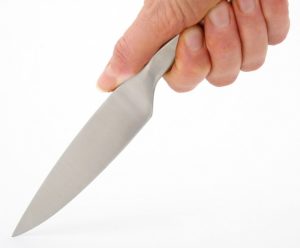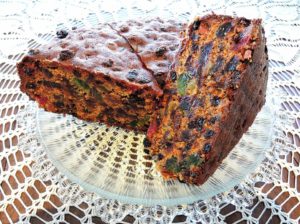
We are coming up on the holidays, when many will get a chance to reconnect with families and friends. Maybe you’ll take a short vacation, either as a break from the cold of winter or to enjoy winter itself. It’s also a time when some of us tend to pack on a few extra pounds.
Today, I want to talk about overeating. I’ll share my food pep-talk, the one I give myself.
I’m inspired by those before and after pictures where people transform their bodies from obese to healthy. I’ve never been big, but I admire those folks, perhaps telling myself, “There but for the grace of God go I.”
Now at about 5 feet 9 inches (and shrinking) and never over two hundred pounds, I bounce between 170 and 180 depending on my exercise regimen and especially, my diet. My jeans are the measure of how I’m doing. Tight pants on my belly pisses me off just enough to get me to do something about it. The mirror is more feedback, especially looking at my profile. I guess I’m still vain enough for it to have some effect. I don’t want to lose that.

The Deal
I’ve struggled enough with diet over the years to sympathize with those who tend to binge on foods—usually ones not particularly good for them. Fact is, once we learn to overeat, or especially to binge on sweets and high calorie carbs, food is no different than alcohol and drugs.
What else would we call it but an addiction? I say it’s similar in more ways than not. Like smoking, drinking, drug use, porn or gambling, we engage a series of biological, behavioural and cognitive processes to support our actions.
That men drink, and women eat is supported by science. Again, there are plenty of women with booze problems and plenty of us guys with food addictions, so this is only helpful in a very general way.
I’m not suggesting any man who overeats tell himself he’s eating like a woman; nor am I suggesting to the overeating woman she should drink instead. Not at all.
What was confirmed recently is the right side of the vagus nerve, the 10th cranial nerve which connects our stomach to the brain, fires dopamine receptors in the brain stem when we eat foods we like. Umami, or savory, is one of the five basic tastes along with sweetness, sourness, bitterness and saltiness. These form the basis of pleasurable eating.
Normal people stop eating when they feel full. Regular folks can eat one cookie and pass on extras. Dieters, on the other hand, learn to ignore the body’s signals about satisfaction, and continue beyond what the body requires and, more importantly, beyond their own rules about eating.
That’s the same with people who wind up addicted to drugs and alcohol. We adapt to the hangovers, the paranoia, the sickness and mood instability, ignoring basic homeostatic imbalance in favour of continued use.
I had to work hard at becoming a junkie, a booze-hound, a pill-popper, and a dope-smoker. I can assure you none of which are experienced as “all butterflies and rainbows.” And that’s just the physical effects, never mind the mental excuses I used to support my habits.
Dieters, just like alcohol and drug users, use rationalizing powers to continue to eat when we know we shouldn’t. If I’ve been good, following my diet and exercise regimen, and then fall off-plan, I should stop when I realize it.
Mostly likely though, I might eat that extra row or two of cookies instead. The reason I do this is because I write it off. I tell myself: “I’ll get back on the program tomorrow.” Sound familiar?
How is that different from a relapsing drinker? The guy who says, “I’ll get straight, just not today; it’s one day at a time right?”
Learning to Ride
Let me ask you something: when was the last time you rode a bicycle?
Now, let’s imagine you had not ridden a bicycle for many years, maybe five or ten or even twenty years. Could you get on a bike today and ride it? Of course, most likely you could. You never forget it.
It’s in the nature of that kind of learning, at the pons and striatum parts of the brain. There’s both a physical and mental component to riding a bike. In fact, it engages the whole chain of being: physical, emotional state, feelings, thoughts and actions. It uses the special powers of focus and language to effect competence on two wheels.

I watched my daughter learn to ride a bike in my backyard two years ago. I saw her starts and stops, the glimpses of success against the feedback of her failures, her crashes and her frustrations. Her self-talk went from negative to cautiously positive as she kept at it. She can ride no-hands now. It’s automatic for her. My boy is five, in spring, off go the training-wheels and he’ll do the same. Neither will ever forget how once learned.
That’s what happens when we learn to eat and overeat. All behavior is supported by antecedents and consequences. Triggers and rewards. Food is no different.
When we’ve been there before it’s much easier to do it again. It’s why the relapsing drug or alcohol user quickly returns to the same level of use. If I was a ten-beer-a-day drinker, within a week or two of relapse I’m right back at the same level of drinking. If I always smoked a bowl first thing in the morning, a few days into cannabis use and I’m all about the wake-and-bake. If I had a half-gram-a-day heroin habit, with access I’m back there in a couple of weeks (if not dead). Food is no different. Dieters can eat too much like we can all ride a bike. We’re good at it.
In fact, it’s a critical exercise in self-care to realize and take note of what triggers our overeating, just as it’s worth having a heart to heart self-talk about what needs we are really meeting. Antecedents and consequences.

The Crux and The Cost
Here’s the thing: at the crux of all addiction is a search to narrow thinking. It’s a way to take many thoughts and turn them into fewer thoughts. It doesn’t much matter if someone uses porn, food, gambling, or the usual mood-altering drugs of alcohol, cannabis, cocaine or heroin, or even pharmaceuticals. Narrowing of thinking is the goal.
Guy goes to the bar on Friday and has all the week’s worries on his mind: bills, missus, bosses, clients, children sometimes, parents, taxes, rents, car repairs, etc. Has 2-3 beers and all he’s thinking about is pizza and pussy. Or sports.
That’s narrowing of thinking.
The drug and alcohol user will hijack the HPA (hypothalamic-pituitary-adrenal—fight or flight) system to put themselves into a mild (or greater) fear state to narrow thinking, to quell the stress of life and escape the self.
It’s using stress to fight stress. And it works… until it doesn’t.
Food does it too. While food doesn’t trigger the body’s HPA system the way mood altering chemicals do, it has similar cognitive influences. Here’s why:
Ask yourself what goes on in your mind when you’re overeating? If you’re like me, it’s often something like, “I really shouldn’t eat this.” That’s accompanied by a kind of guilty pleasure where I’m torn between the good food or treat and the image I have of myself as a sane and capable adult who can manage diet. The for and against self-talk going on hijacks my thinking to the point of escape.
As you may know, cognitive dissonance occurs when we behave in a way that is inconsistent with self-image. But here’s the screwed-up part: we tend to take the path of least resistance when this happens. Instead of learning and shoring up our approach, we tend to give in.
If I see myself as an honest man and find myself bullshitting people, the right thing to do is to admit my exaggerations and course correct. If I don’t, what I’ve done is accepted a lesser version of myself. I end up altering my self-concept.
Self-concept is how I see myself up against how I believe others see me. It’s also destiny. One of the biggest factors in all addiction is self-concept and how we give into dissonance, thereby accepting a lesser version of ourselves in the process.
Suddenly we see ourselves as a righteous junkie. Rationalizing alcohol use by saying “it’s legal right? Don’t you live longer drinking a glass of wine every day?” as you finish the last glass and toss your empty bottle into the recycling. We might see ourselves as “pleasantly plump” or better, “I need a bit extra to fend off the cold,’ something we can use up here in Canada. It’s all bullshit, and we might call it as it is and look for a deeper answer.
Because when I say to myself, “I really shouldn’t eat this” what I’m doing is not thinking about all the other bullshit in my life, while getting a mild dopamine hit at the same time.
And all that guilt is painful, the to and fro of my thoughts and craving just helps me narrow my thinking even more. I stuff what my body is telling me, my sense of fullness, the cavity activated by sugar in my mouth, the rules I had about diet. In some twisted way, this is the peace I seek from my existence.
Until the only way I can deal with the dissonance over time is to change my self-concept. The problem is accepting my lesser self, allowing it to rise instead of the person I want and choose to be. That’s a bigger cost later.
First thing about all this is to realize the whole overeating bit as an obvious quelling of overthinking. And if those thoughts are predominantly stress producing, more reason to try and quiet or change them. In this sense, it’s a quest for control. So, I now ask myself, “what am I escaping from?”
It also means your body (and mind) is working properly–it’s seeking to alleviate your suffering somehow. That’s a good thing but it’s just the tendency—overeating or going off-diet—is the wrong choice being made in response to stress. With awareness, you and I can do better.

The Gift
Think of a time when you were at your happiest doing something. All of us have periods where we engage in an activity which we found interesting enough to be pleasurable yet had enough complexity to be challenging and keep our attention. This made us focus to a high degree. Concentrating while learning to ride the bike may have been like that for you. Or perhaps it was something else.
You may recognize this description as something akin to a “zone” or “flow.” When there is a confluence of passion, talent and focus, with enough complexity to keep us engaged, you can enter a state which literally seems to stop time.
Think of moments in your life when you remarked, “where the heck did the time go?” You have been in this zone. All of us have. It can come from any endeavor which is challenging enough and requires a degree of competence making it pleasurable, forcing us to concentrate at a high level.
I suggest this is the perfect expression of our existence under the sun. It is then we are in harmony with our surroundings, where we feel like we are earning our right to life. We seek to return there in our everyday moments to alleviate our existential angst, because it stops time. In the zone, we don’t feel aging, while still moving ahead. It’s powerful magic. I’m suggesting this is the real drug you seek.
The first time we are aware of having hit a zone we are astonished at its power. Perhaps there’s a part of us which seeks to deny this manifestation of living lest we find ourselves unworthy. And isn’t it always that in part? Isn’t it always that we think somehow we won’t measure up, that we won’t be good enough and because of this, we won’t be loved?
It’s the human need to belong again, clouding judgement and creating just enough fear to keep us humble. The question is not whether I should eat that box of donuts; it’s whether I will celebrate my existence?
Though, what have we got to be humble about? After all, of the 40 to 200 million sperm vying for the egg which began your life, it was you who made it to the finish line. Not some other contender, perhaps of a different chromosome mix. I could have been a girl, and if you’re a girl, you could have been a boy. You were chosen as is.
Who are we to question the wisdom of the universe? It’s easy to remember: the Andromeda Galaxy has a trillion stars. A trillion my friend. Whatever same force created THAT created YOU. This is infinite wisdom.
So, my suggestion is to ask yourself just before you feel like eating blindly or compulsively, before you feed the inner pig (which exists in us all) that you pose the question I ask myself: “How else can I narrow my thinking (in a way that honours the life I’ve been given)?”
For whatever your mix of talents and passions, you are unique, a chosen soul for good reason. It’s not just about satisfying needs and alleviating fears or decreasing stress and being comfortable. It’s what you owe. Yes, indeed.
It’s what you owe for winning the greatest prize of all: a life.
Stay powerful.
CKWallace
Advisor to Men
©2018 all rights reserved
Join our weekly men’s group:
https://advisortomen.com/board-of-directors/
Join our facebook group:
https://www.facebook.com/groups/advisortomen


